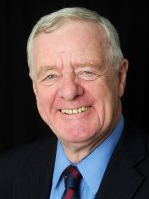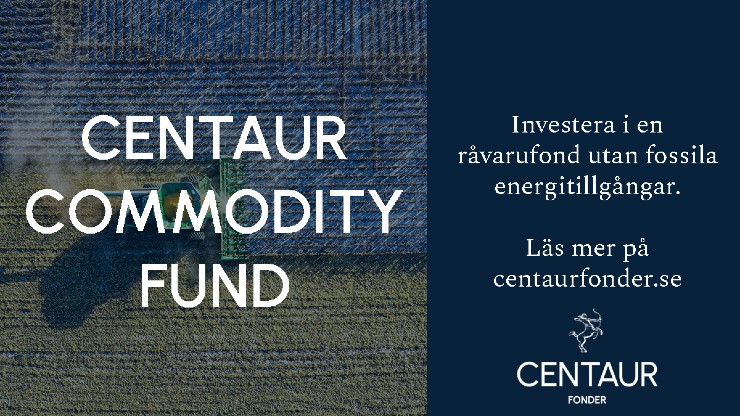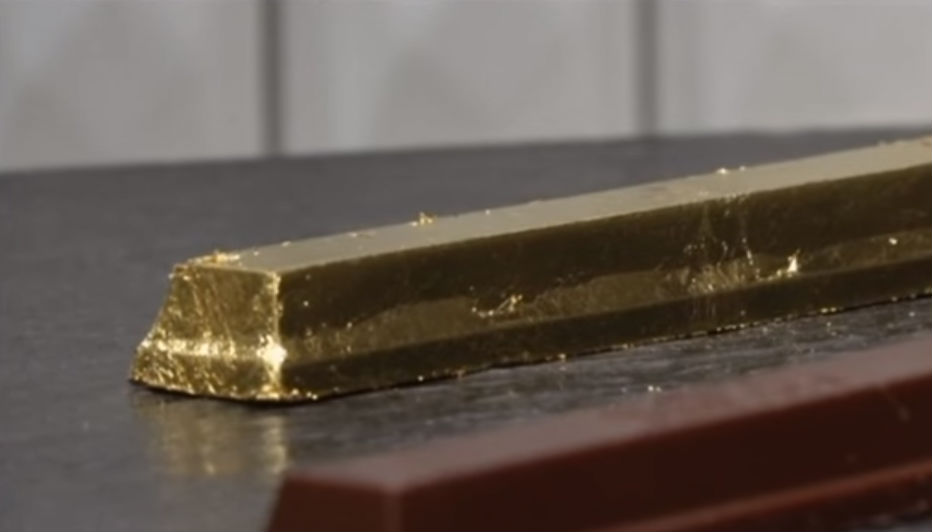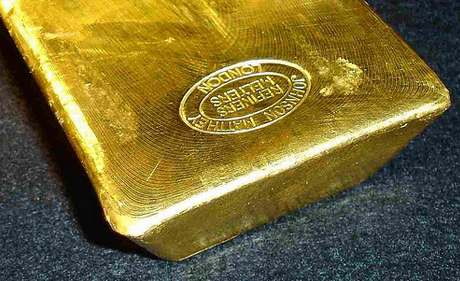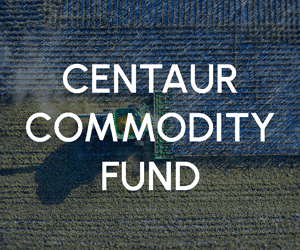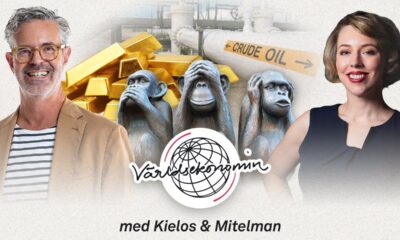Nyheter
David Hargreaves on Precious Metals week 11 2012
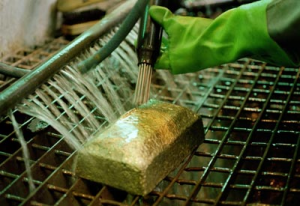 The Gold Camp is in mild turmoil. Those whose reputations are at stake are pouring some rather expensive oil on some rather troubled water, to explain that the recent retraction is but a hiccup. (Note we avoided saying “flash in the pan”?). To remind ourselves, the all time high of $1921/oz in 2011 became $1707/oz by March 9th, having suffered 3 weeks of losses. What has caused it?
The Gold Camp is in mild turmoil. Those whose reputations are at stake are pouring some rather expensive oil on some rather troubled water, to explain that the recent retraction is but a hiccup. (Note we avoided saying “flash in the pan”?). To remind ourselves, the all time high of $1921/oz in 2011 became $1707/oz by March 9th, having suffered 3 weeks of losses. What has caused it?
- Technical analysis sees the upward trend intact, $3500/oz likely this year despite the crash (Goldrunner).
- Gold correction may not be over, but this is no bubble (Marc Faber). He notes that a 40% retraction in a bull market is “not unusual”. So, $1152.6/oz here we maybe come. That’s better than our $1300-1400.
- Silver fundamentals are better than gold. (The Gold Report).
- Sales of bullion coins in the USA nosedived last month, February 2012.
- Gold will continue its 11 year bull run in 2012. (Dundee Securities).
- Africa is the new gold mining frontier. (PDAC Conference, Toronto).
Ever felt you were all alone out there? The shares are certainly not taking the lead now, are they?
Gold Shares. An interesting slant on the relative value of gold shares versus the metal. Franco Nevada’s Chairman, David Harquail says low ratings are all the gold miners’ fault when compared with ETFS. We think he has a point. Mining companies are quick to blame the volatility of the gold price on the poor share performance, but let’s ponder. If you have a single entity mine, with a quantified resource, planned output and mine life, you can do a valuation. Then the gold price kicks in. But if you pay a regular and measurable dividend to end-of-life, you almost have a Government bond with a life yield, plus a bit of fun. That’s how it used to be. Now you have companies chasing rainbows, multi-nationalising, adding political risk to mining risk and wondering why they are poorly rated. Anybody out there listening?
The Platinum Story Will Run. Even as the chaos in South Africa, home to 60% of all PGM output intensifies, Zimbabwe, No.3 at 5%, but with s-o-o much upside, tightens the screws on No.2 miner Implats via its local subsidiary Zimplats. The Zim Government, without the blessing of coalition Premier, Mr. Tsvangari, has apparently cast in stone its demand for a 51% local shareholding in all foreign and white owned companies in that benighted land. Leading the charge is Empowerment Minister Saviour Kasukuwere (doesn’t say who he has come to save but knows who his disciples are). He has now apparently called Zimplats bluff. If they do not comply by March 13th he will get heavy. Which means what? Now Implats could ride this. They stand to benefit by the inevitable reorganisation of the RSA industry. But can Zim survive it? They cannot threaten one company alone. They have Rio Tinto, Anglo American and other heavyweights to consider. So is it all or nothing on China? We are in for an interesting week.
And run it will, Eastern Platinum (Eastplats, ELRq.L 0.12p; Hi-o 97.25-31.5p), the TSX, JSE listed South African producer gave us the horror story now becoming familiar in the industry. 2011 sales fell 30% with production down through safety stoppages and strikes. It cost almost 40,000oz of production.
Warren Buffett, who agrees with us on gold, says the metal is heading for a correction and that all bubbles eventually ‘pop’. He warms to his theme, telling his Berkshire Hathaway shareholders “What the wise man does at the beginning, the fool only does at the end”. Put another time-tested way, two thirds of the people get in when two thirds of the rise is over.
Red Lake Rises Again. The northwest Ontario goldfield rush of the 1920’s ranks alongside the greats, particularly for the grade of ore. Campbell was for many years the world’s richest, alongside Madsen, Dickinson and Cochenour. Now Rubicon is to join the ranks (TSX: RMX, AMEX, RBY). The company says it has raised enough money, $200M, to bring its Phoenix Mine on stream by end 2013 at 180,000oz/yr grading 13.37g/t. Before jealousy creeps in it drops to 70 below in winter and the mosquitoes eat you alive in summer. They speak of an NPV of C$433M at an $1100/oz gold price. Agnico Eagle has a 9.2% stake and the right to farm-in to further discoveries.
Foot in Mouth Disease? Marc Faber, he of Gloom, Boom and Doom Report, says that the gold correction may not be over, but that corrections of 40% are not unusual in a bull market. So we transiently saw $1921/oz. Deduct 40% and you have $1153/oz. That, Mr. Faber is the sound of compressed air escaping at speed from your rear tyre.
[hr]
About David Hargreaves
David Hargreaves is a mining engineer with over forty years of senior experience in the industry. After qualifying in coal mining he worked in the iron ore mines of Quebec and Northwest Ontario before diversifying into other bulk minerals including bauxite. He was Head of Research for stockbrokers James Capel in London from 1974 to 1977 and voted Mining Analyst of the year on three successive occasions.
Since forming his own metals broking and research company in 1977, he has successfully promoted and been a director of several public companies. He currently writes “The Week in Mining”, an incisive review of world mining events, for stockbrokers WH Ireland. David’s research pays particular attention to steel via the iron ore and coal supply industries. He is a Chartered Mining Engineer, Fellow of the Geological Society and the Institute of Mining, Minerals and Materials, and a Member of the Royal Institution. His textbook, “The World Index of Resources and Population” accurately predicted the exponential rise in demand for steel industry products.
Nyheter
Samtal om flera delar av råvarumarknaden

Ett samtal som sammanfattar ett relativt stabilt halvår på råvarumarknaden trots volatilitet och geopolitiska spänningar som sannolikt fortsätter in i andra halvan av året. Vi bjuds även på kommentarer från Carlos Mera, Rabobanks analyschef för jordbrukssektorn och Kari Kangas, skogsanalytiker.
Nyheter
Jonas Lindvall är tillbaka med ett nytt oljebolag, Perthro, som ska börsnoteras
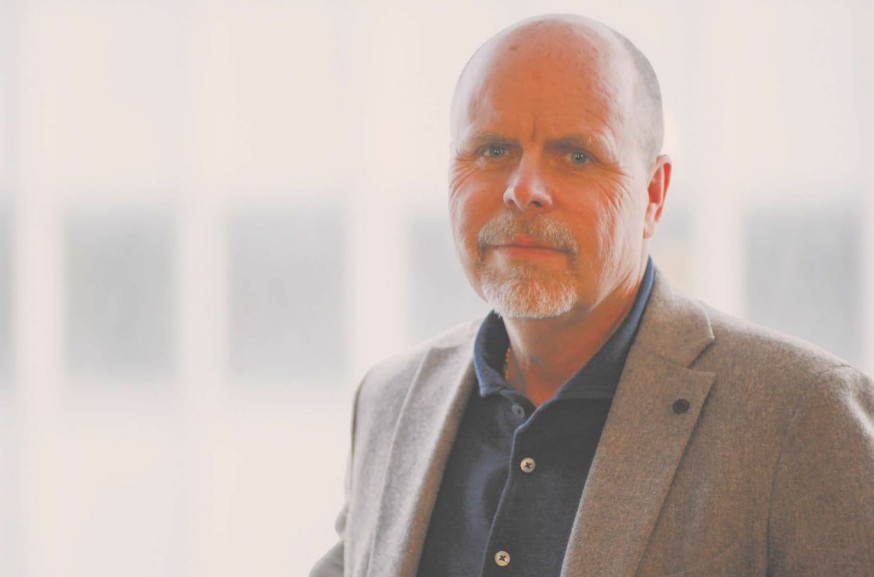
Jonas Lindvall, ett välkänt namn i den svenska olje- och gasindustrin, är tillbaka med ett nytt företag – Perthro AB – som nu förbereds för notering i Stockholm. Med över 35 års erfarenhet från bolag som Lundin Oil, Shell och Talisman Energy, och som medgrundare till energibolag som Tethys Oil och Maha Energy, är Lindvall redo att än en gång bygga ett bolag från grunden.
Tillsammans med Andres Modarelli har han startat Perthro med ambitionen att bli en långsiktigt hållbar och kostnadseffektiv producent inom upstream-sektorn – alltså själva oljeutvinningen. Deras timing är strategisk. Med ett inflationsjusterat oljepris som enligt Lindvall är lägre än på 1970-talet, men med fortsatt växande efterfrågan globalt, ser de stora möjligheter att förvärva tillgångar till attraktiva priser.
Perthro har redan säkrat bevisade oljereserver i Alberta, Kanada – en region med rik oljehistoria. Bolaget tittar även på ytterligare projekt i Oman och Brasilien, där Lindvall har tidigare erfarenhet. Enligt honom är marknadsförutsättningarna idealiska: världens efterfrågan på olja ökar, medan utbudet inte hänger med. Produktionen från befintliga oljefält minskar med cirka fem procent per år, samtidigt som de största oljebolagen har svårt att ersätta de reserver som produceras.
”Det här skapar en öppning för nya aktörer som kan agera snabbare, tänka långsiktigt och agera med kapitaldisciplin”, säger Lindvall.
Perthro vill fylla det växande gapet på marknaden – med fokus på hållbar tillväxt, hög avkastning och effektiv produktion. Med Lindvalls meritlista och branschkunskap hoppas bolaget nu kunna bli nästa svenska oljebolag att sätta avtryck på världskartan – och på börsen.
Nyheter
Oljan, guldet och marknadens oroande tystnad
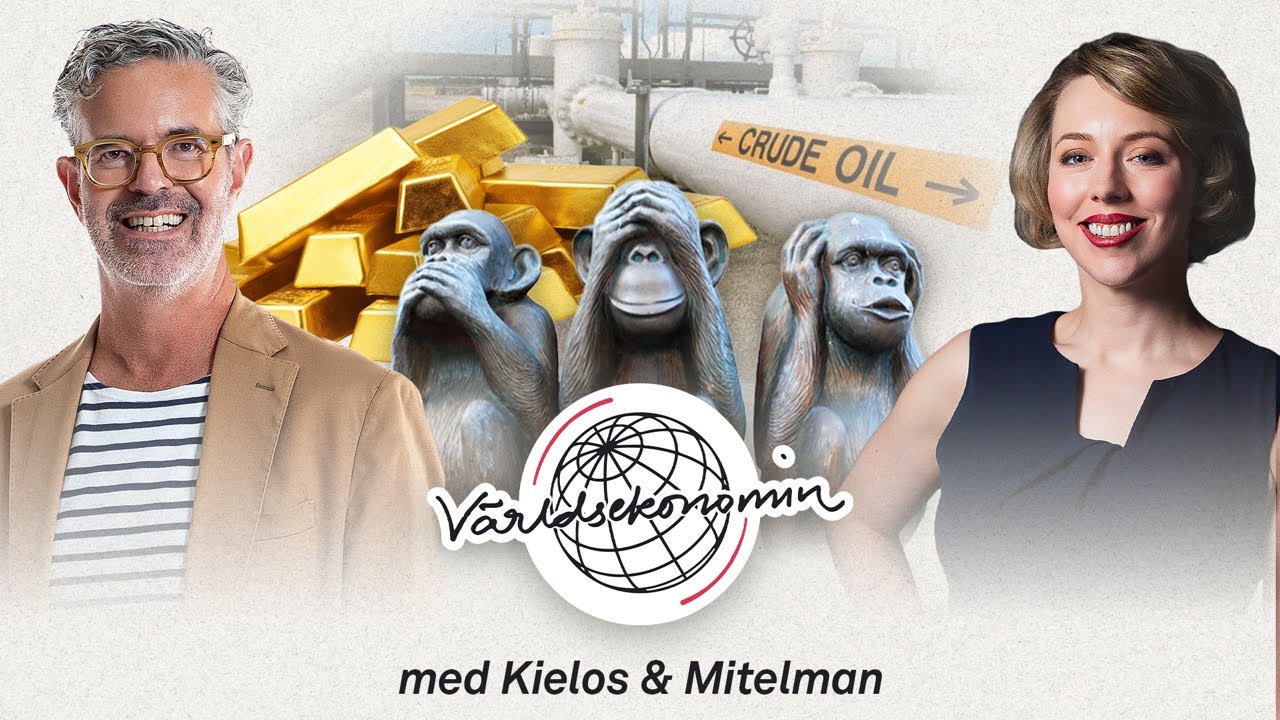
Oljepriset är åter i fokus på grund av kriget i Mellanöstern. Är marknadens tystnad om de stora riskerna, det som vi egentligen verkligen bör oroa oss för? Och varför funderar Tyskland på att plocka hem sin guldreserv från New York? I veckans avsnitt av Världsekonomin pratar Katrine Kielos och Henrik Mitelman om olja, tystnad och guld. Europa är ju mer beroende av oljepriset än USA, hur orolig ska man vara för att det stiger? En krönika i Financial Times lyfte nyligen “marknadens oroande tystnad”, den syftade på skillnaden mellan den dystra geopolitiska utvecklingen i världen och en marknad som samtidigt återhämtat sig 20 procent sen början av april, trots tullkriget. Vad säger marknadens tystnad egentligen? I Tyskland pågår en debatt om att plocka hem sin guldreserv från USA. Handlar det om bristande förtroende för Donald Trump – och kan det rentav ha något med “hämndskatten” att göra?
-

 Nyheter3 veckor sedan
Nyheter3 veckor sedanStor uppsida i Lappland Guldprospekterings aktie enligt analys
-

 Nyheter4 veckor sedan
Nyheter4 veckor sedanBrookfield ska bygga ett AI-datacenter på hela 750 MW i Strängnäs
-

 Nyheter4 veckor sedan
Nyheter4 veckor sedanSommaren inleds med sol och varierande elpriser
-

 Nyheter3 veckor sedan
Nyheter3 veckor sedanSilverpriset släpar efter guldets utveckling, har mer uppsida
-
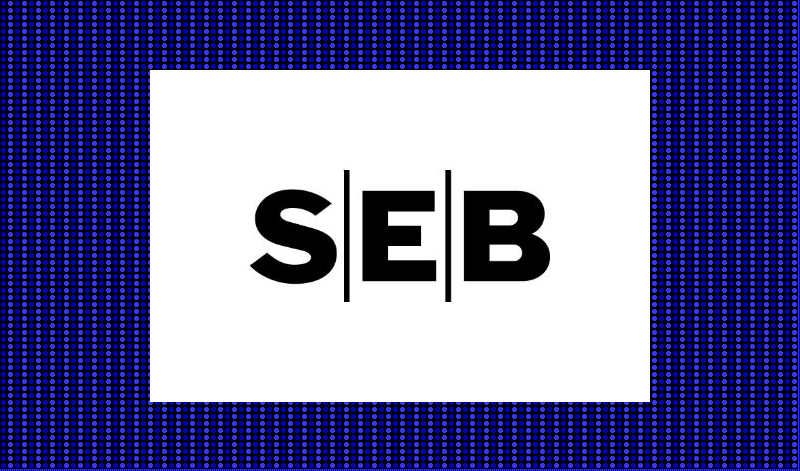
 Analys4 veckor sedan
Analys4 veckor sedanBrent needs to fall to USD 58/b to make cheating unprofitable for Kazakhstan
-

 Nyheter4 veckor sedan
Nyheter4 veckor sedanTradingfirman XTX Markets bygger datacenter i finska Kajana för 1 miljard euro
-

 Nyheter2 veckor sedan
Nyheter2 veckor sedanUppgången i oljepriset planade ut under helgen
-

 Nyheter2 veckor sedan
Nyheter2 veckor sedanLåga elpriser i sommar – men mellersta Sverige får en ökning


